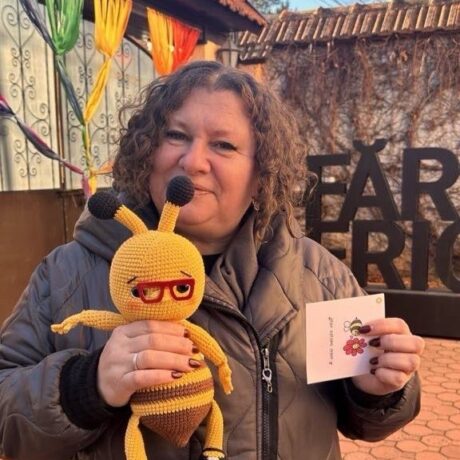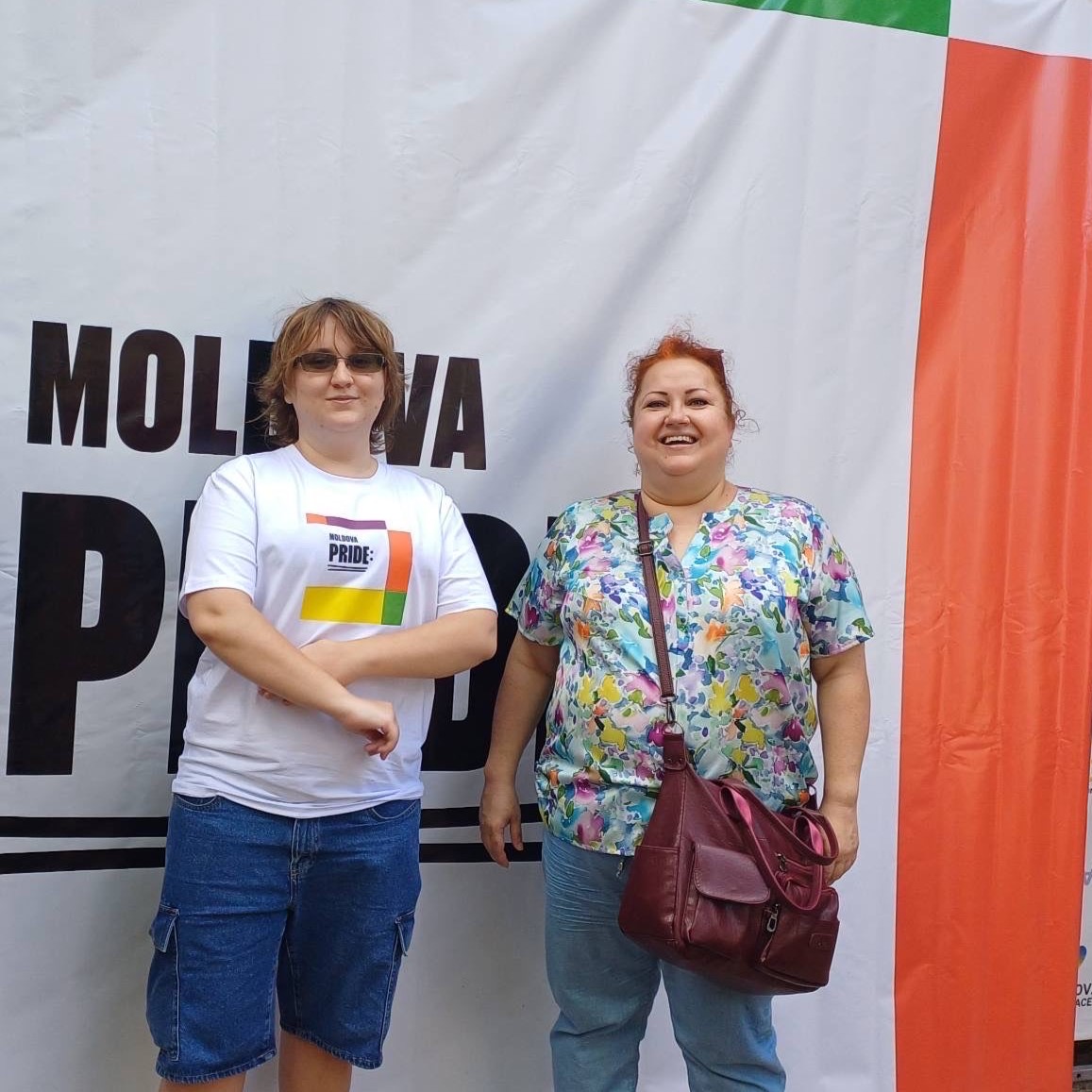Transgender Day of Visibility
- Each year on March 31, the world observes Transgender Day of Visibility (TDOV) . It is a day to celebrate the lives and contributions of trans people, while also acknowledging the challenges imposed on the community by transphobic attitudes, policies and legislation.
- For the Norwegian Helsinki Committee, this day is a way to promote the work being done by our LGBTIQ partners every day all year – from which we are so grateful to be able to share stories that show how important visibility, knowledge and solidarity can be for a person, their family and community.
‘At first, I wasn’t even sure what transgender meant – that ‘T’ in LGBTIQ+’, says Larisa, the mother of a transgender teenager. She recalls the shock she felt when her child revealed they identified as trans. ‘I turned to the internet, where I found perhaps too much information for a confused, shocked parent.’
‘Apart from the basics, it was important for me to understand how a transgender child could survive in Moldova’, she reflects.
What she missed the most, was the comfort of another parent’s experience and ‘an expert’s reassurance that it’s not the end of the world’.
‘I can’t say I found what I was looking for’, she notes.
The Challenges Faced by Parents of LGBTIQ+ Children
Larisa’s experience is not unique, according to GenderDoc-M – and longstanding partner of the Norwegian Helsinki Committee.
GenderDoc- M is the first LGBTIQ+ organization in Moldova, and since 1998 their staff have been working tirelessly to support the community, through services, social platforms, advocacy and pride organizing. From early on it was imperative for them to assist not only the community, but also their families.
They established their Parent group for LGBTIQ+ children twenty years ago! Natalia Ozturk took part in establishing the group and is still coordinating it.
‘The group was established almost 20 years ago as a result of working with members of the LGBTIQ+ community who began coming out to their families in large numbers. Angry and desperate parents started calling and coming to our office’, she recalls.
‘Something had to be done. We decided to bring all the parents together. That’s how the first group was formed, which later became a support group for parents. Some of the parents who attended that very first meeting are still part of the group today and form its core.’
Natalia Ozturk supports Larisa’s story.
‘The need for this support group still exists. It helps parents deal with their emotions, access reliable information, and find like-minded people. The group improves family relationships, helps protect children from discrimination, and gives parents the strength to offer support and engage in activism.’

‘Sex education should be taught in schools alongside biology, physics, and chemistry.’
Moldova has traditionally been considered among one of the countries in Europe where it is most difficult to be part of the LGBTIQ+ community. And despite making some modest improvements – a survey from 2024 revealed that about 70 per cent of Moldovans would not accept members of the LGBTIQ+ community as neighbours. Needless to say, sexuality education remains a taboo topic. Some parents still tell their children that they were brought by a stork or picked from a cabbage field.
Both children and parents lack the information they need to address crucial topics like sexuality, sexual health, and gender identity. In this way, LGBTIQ+ issues are entirely overlooked. The culture of silence and shame significantly affects LGBTIQ+ individuals.
The church remains one of the main institutions opposing the introduction of sexuality education in schools. Their argument is that this would expose children to “gender ideology”.
Larisa believes, however, that ‘sex education should be taught in schools just like biology, physics, and chemistry – it’s a part of our lives, whether we like it or not’.
Parents who refuse to discuss these topics with their children often think they are protecting them, but Larisa believes they are actually putting them at greater risk. ‘Children are curious, and it’s better for them to receive information in a structured and responsible way than to come across misleading sources that can lead to wrong decisions, with long-term consequences’, she asserts.
Dreaming of a more Inclusive Society
Larisa envisions a world where trans and gender non-conforming children can express their identities without fear of rejection. ‘I’d like to see trans children winning the Olympics and other competitions, proudly showcasing their identity’, she says. ‘Instead of being asked about gender (male/female), I want my child to be asked by a teacher, employer, or doctor: ‘How would you like me to address you?’ Identity documents should be for record purposes only.’
The support group for parents of LGBTIQ+ children at GenderDoc-M, of which Larisa is a member, has profoundly changed her perspective, and she encourages other parents to find the strength to support their children, no matter the circumstances.
‘Since joining this group, I’ve grown so much personally, changed my views, and made new friends. It’s much easier for me to live in our society now, and I truly want to change it for the better. Now I understand, it was a blessing to have my child’, she says.
‘Larisa’s story is a powerful example of why our support group is so important’, says Natalia Ozturk.
‘When her child came out, she was faced with anxiety, confusion, and fear about the future. But by joining our community, Larisa found not only information but also support – people who had already been through this journey and were ready to help others.‘
‘Today, she has not only fully accepted her child but has also become an active voice for the rights of LGBTIQ+ children and their families. Her story is one of transformation – from doubt to conscious love, from fear to strength, from isolation to community.’
‘This is exactly why our group exists – so that parents understand they are not alone, that their feelings matter, and that their children deserve love and respect. We create a space where people can learn, share experiences, and help transform society into one that is more accepting and safer for everyone.’
This article is made partially on a text by Vasile MICLEUȘANU, read the full text here.

